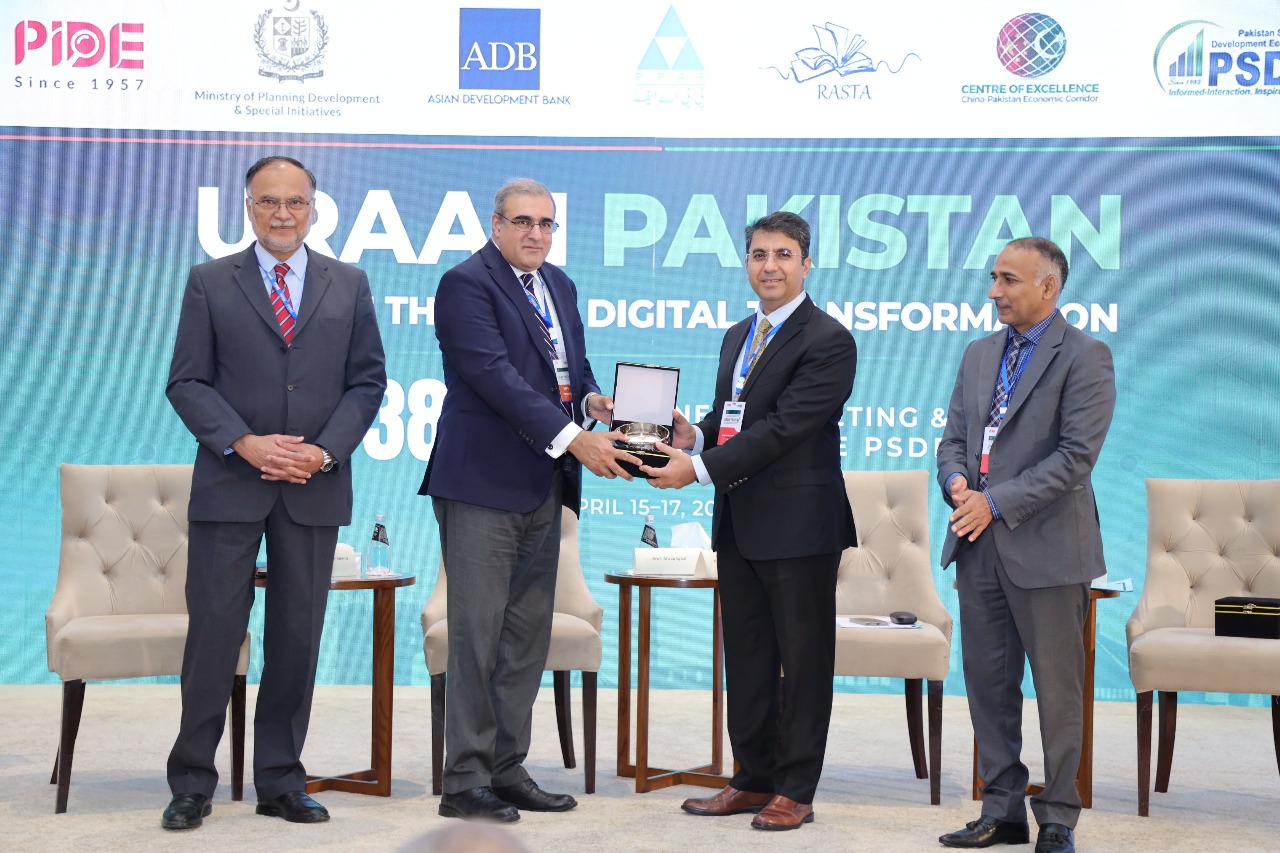
Islamabad 15 April 2025(kamran Raja): The 38th Annual General Meeting and Conference of the Pakistan Society of Development Economists (PSDE), organized by the Pakistan Institute of Development Economics (PIDE), opened in Islamabad with a powerful message: Pakistan is not underdeveloped it is under-managed. Held in collaboration with the Ministry of Planning, Development & Special Initiatives (MoPD&SI), the Asian Development Bank (ADB), the Pakistan Poverty Alleviation Fund (PPAF), RASTA, and the CPEC Centre of Excellence, the conference is themed “URAAN Pakistan: Growth Through Digital Transformation”—a call to reimagine development in the digital era.
In his keynote address, Federal Minister for Planning and Chancellor of PIDE, Prof. Ahsan Iqbal, laid out a comprehensive roadmap for transformation through the URAAN 5E Framework, focusing on Exports, Equity & Empowerment, E-Pakistan, Environment & Climate, and Energy & Infrastructure. He emphasized that technology is a powerful equalizer and stressed the need for National Centres for Digital Innovation, long-term planning, and consistent policies to overcome structural instability.
“Pakistan is not poor country but a poorly managed economy so digitization offers lot of opportunities to improve the business processes and boost productivity”, Federal Minister added.
Dr. Nadeem Javaid, President of PSDE and Vice Chancellor of PIDE, introduced his “Leapfrogging Ladder Theory,” proposing a model for Pakistan to bypass conventional stages of development through the adoption of frontier technologies, institutional reinvention, youth-led innovation, and a strong absorptive capacity. Stressing the urgency of a digital-first mindset, he stated, “We cannot shape the digital future with analog instincts—Pakistan must choose curation over censorship, and strategy over suspicion.”
Mr. Awais Manzur Sumra, Federal Secretary of MoPD&SI, described URAAN Pakistan as a strategic blueprint to achieve a $1 trillion economy by 2035. He reaffirmed the centrality of the 5Es framework to digital-first governance and urged policymakers to implement real policy shifts to build a more inclusive, technology-driven Pakistan.
Dr. Nasir Iqbal, Secretary of PSDE, reaffirmed the Society’s enduring role in connecting rigorous academic research with practical policymaking. He expressed gratitude to Prof. Ahsan Iqbal and Dr. Nadeem Javaid for facilitating the re-allotment of land for a new PIDE campus. He also noted the academic strength of the conference, with 150 research papers received and 40 selected for presentation through a blind review process.
The conference aims to: accelerate Pakistan’s digital transformation through inclusive, data-driven policies; integrate global best practices with localized adaptation for AI and digital governance; strengthen public-private partnerships in education, health, and technology; and redefine development by promoting innovation, youth engagement, and long-term planning.
With a robust three-day agenda of thematic panels, policy dialogues, and expert lectures, the PSDE conference sets the stage for actionable insights and collective commitment toward a digitally empowered Pakistan. As Prof. Ahsan Iqbal aptly stated, “Let us move from planning to action—unity, innovation, and data are the tools to rise.”